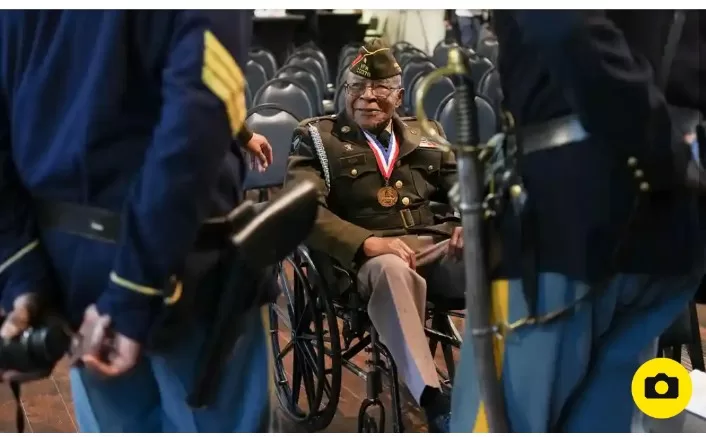In a monumental move, the United States Army has officially overturned the convictions of 110 Black soldiers, 19 of whom faced execution, relating to a mutiny at a Houston military camp a century ago. The decision, announced during a ceremony honoring the Buffalo Soldiers, seeks to rectify the harsh punishments meted out in connection with Jim Crow-era racism.
The historic reversal was unveiled at a ceremony posthumously honoring the Buffalo Soldiers, who were dispatched to Houston in 1917 during World War I to guard a military training facility. Tensions escalated between the regiment and white police officers and civilians, resulting in 19 fatalities.
Gabe Camarillo, the under secretary of the army, stated, “We cannot change the past; however, this decision provides the Army and the American people an opportunity to learn from this difficult moment in our history.” The initiative stems from requests by the South Texas College of Law in October 2020 and December 2021, prompting the army’s reconsideration of the cases.
At the army board for the correction of military records’ behest, a thorough review found “significant deficiencies” and declared the proceedings “fundamentally unfair.” Consequently, all convictions were unanimously set aside, and the soldiers’ military service characterized as “honorable.”
Christine Wormuth, the secretary of the army, emphasized that the decision acknowledges past mistakes and rectifies the record. “After a thorough review, the board has found that these soldiers were wrongly treated because of their race and were not given fair trials,” Wormuth affirmed.
The corrected military records may entitle the families of the soldiers to compensation. The historic events unfolded in August 1917 when the all-Black Third Battalion of the US Army’s 24th Infantry Regiment, renowned as the Buffalo Soldiers, clashed with racial provocations in Houston.
The soldiers were assigned to guard Camp Logan, a military training facility under construction for white soldiers being prepared for deployment to France during World War I. The racially charged environment culminated in a large-scale confrontation.
Out of 118 soldiers, 110 were convicted in the largest murder trial in US history, with 19 facing execution. The army’s statement revealed that the first executions occurred secretly a day after sentencing, prompting immediate regulatory changes to prevent future executions without proper review.
Families of the soldiers now have the opportunity to seek benefits through the US army board for the correction of military records. A descendant present at the ceremony expressed, “Today is a day I believed would happen. I always did.”
By AP




